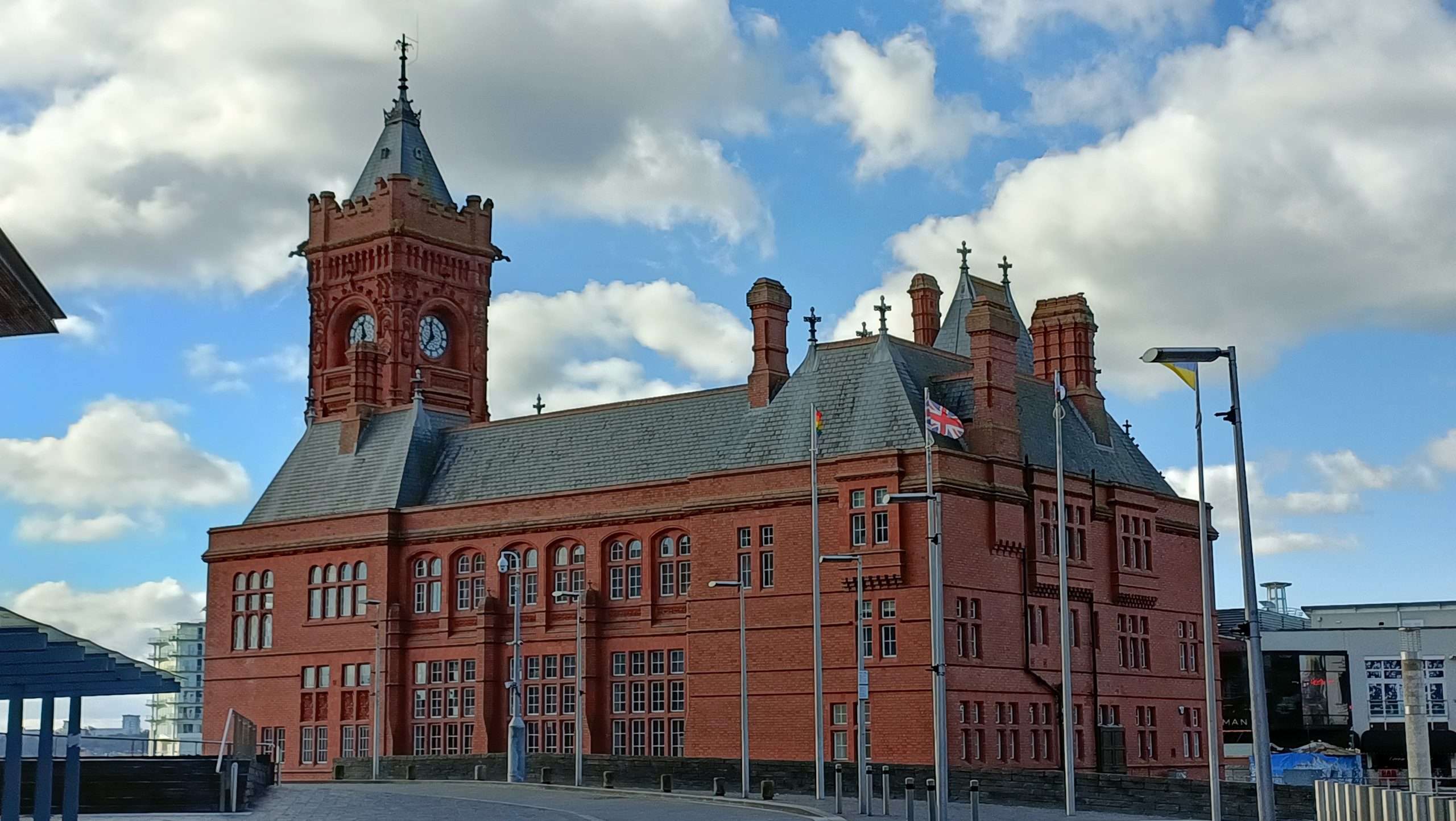A Cardiff mum desperate to get her family of seven moved out of a two bed house has opened up on the stress of not knowing how her ill husband will recover there.
Shareen Matthews, 27, has lived on Heol Muston in Ely for eight years. About three years ago, she and her families’ lives were shaken when husband, Kacee, was diagnosed with a rare condition that has left him with debilitating tumours on his hip.
Shareen has spoken of how her infant twins have to sleep in a space saving cot and how everyone in the house is “literally on top of one another”, but she is also worried about how Kacee, 29, will recover from a possible hip replacement in cramped conditions.
Cardiff Council, which currently has a severe shortage of housing, said they very recently moved Shareene into a higher housing waiting list band, but they cannot say when the family will be able to move.
“He hates the fact that he can’t move around his own house,” said Shareene.
“Because he uses crutches, he can’t move around safely because there is a bouncer or a jumper or there is a dolls house.
“We haven’t got the space, but we can’t deny our children toys because of it.
“It is really hard. It has taken a massive toll on his mental health as well.
“He is sleeping downstairs on his own and he is not upstairs with his wife.”
Kacee is currently suffering from what is called pigmented villonodular synovitis (PVNS).
With Kacee, it means he is living with tumours on his hip which make it difficult for him to walk.
Shareene said the tumours are not cancerous, but they do leave Kacee in agony and he often needs the aid of crutches, or a wheelchair if he is travelling longer distances. He also struggles to get up and down the stairs.
The mother of five said she has been fighting for about six years for a bigger property for her family, but she became more desperate as Kacee’s illness got worse.
She said: “We have been in talks with his surgeon and consultant in regards to treatment.
“We have had to refuse these things because of our living situation. We haven’t refused the hip replacement… but we haven’t said ‘yes, you can do it now’.
“We know the NHS is under strain. They haven’t got the beds… so how is he possibly going to recover?
“With a hip replacement you need to be in a wheelchair whilst you recover, you can’t just get up and walk.
“I have to take my kids out, I have to take the pram outside, unfold it and then put them in because I can’t get it through my door.
“It definitely won’t work with a wheelchair.
“I dread if they send a letter today to say he has to go in to have this replacement or an operation. I would be so worried.”
It is not just Kacee who suffers from health issues. Shareene also said one of her boys suffers from a chronic lung disease.
Numerous letters have been sent to the council from bodies and professionals, like Flying Start and a Cardiff and a Vale University Health Board consultant, recommending that the family needs to move to a more appropriate home.
She also contacted her local MP, Kevin Brennan, who sent a letter to the council.
The two eldest boys in the family, 9 and 8, sleep in one bedroom and Shareene, her daughter, 5, and infant twins, 1, sleep in the other bedroom.
Kacee sleeps on a fold-up bed in the living room downstairs.
On trying to get her family moved, Shareene said: “It feels like I am fighting a losing battle.
“It’s not like I am not grateful for a house because, God, I am grateful for this house. It is a lovely house.
“It is just not convenient for my family anymore. Even without the kids, this house wouldn’t be any good.”
A council spokesperson said: “Mrs Matthews’ housing needs have changed since she was allocated her current home, which met her needs at that time.
“The council has recently reviewed her application to the housing waiting list on receipt of additional medical information.
“The application has now been moved into a higher priority band and assessed as requiring a larger property which meets the medical needs of the family.
“A referral has also been made to our Occupational Therapy Team for a needs assessment in relation to any offer that is made.
“Unfortunately, even when a family’s needs change and they require a bigger home, any move will depend on a suitable property becoming available, which can take some time.
“We recognise the difficulties this can cause and are working hard to increase availability of more affordable homes, including larger family homes.”
Shareene described the feeling of being moved to a higher priority waiting list band as one of relief.
However, she is still waiting for an answer that the council still cannot provide her or many families across Cardiff right now.
Like other local authorities across the country, Cardiff Council is dealing with a huge council housing waiting list.
In Cardiff there are currently 1,028 single people in temporary and emergency accommodation, 122 families living in hotels and 595 families in standard temporary provision.
The council’s cabinet recently approved proposals to buy two commercial properties – one which could be converted to deliver 79 new homes, while the second building would deliver 20 new family apartments, ranging from one to four bedrooms units.
A vacant development site close to these two buildings is also available and would allow the Council to expand its modular homes programme to create around 150 homes for temporary or long-term family accommodation.
A council spokesperson added that the local authority’s housing development programme has capacity to deliver 4,000 new homes for the city, at least 2,700 of which will be council homes.
Please donate here: Support Carmarthenshire News Online Thank you for supporting independent journalism and contributing to the future of local news in Carmarthenshire. Carmarthenshire News Online has been dedicated to providing unbiased and trustworthy news, free from commercial or political influence. By donating as little as £1, you can help ensure the continuation of this important source of information for the community. Your contribution will have a significant impact on the sustainability of independent journalism. If you're looking to enhance your brand's visibility, we also offer advertising opportunities on our Livestream and podcasts. Our special offers provide excellent value for reaching our engaged audience. To learn more about these opportunities and to discuss your advertising needs, please feel free to call or text us at 07308598604. Thank you again for your support, and together we can ensure the availability of quality local news for Carmarthenshire and beyond.
Please donate here: Support Carmarthenshire News Online







